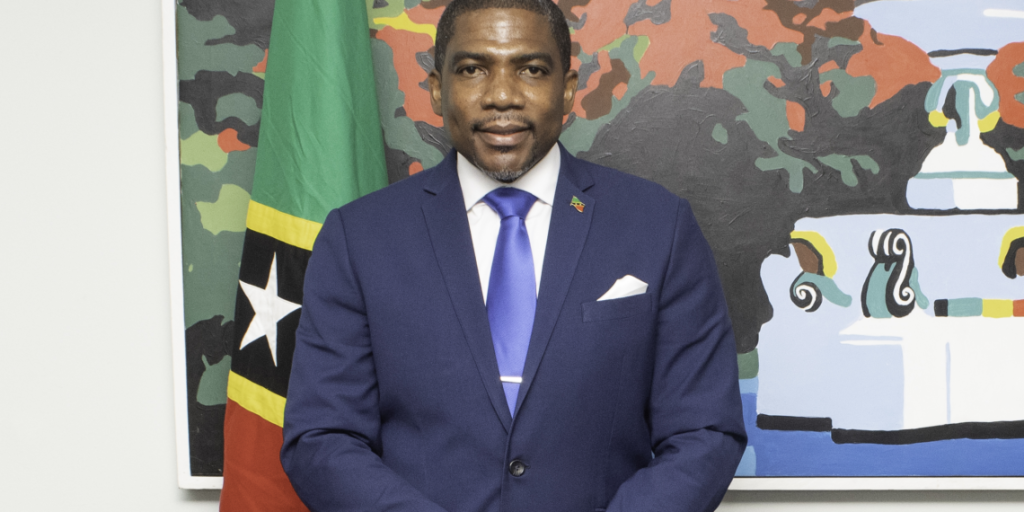Address by Prime Minister Terrance Drew at the 156th Session of the WHO Executive Board
Dr. Terrance Drew, Prime Minister of St. Kitts and Nevis, addressed the 156th session of the World Health Organization’s (WHO) Executive Board, emphasizing the interconnectedness of global health security and sustainable development. He underscored the vulnerability of Small Island Developing States (SIDS) to health emergencies and climate change, advocating for equitable access to healthcare resources, including vaccines and essential medicines. Dr. Drew highlighted the importance of strengthening primary healthcare systems, promoting universal health coverage, and investing in human resources for health to build resilience against future pandemics and address non-communicable diseases. He further called for international collaboration and solidarity in tackling global health challenges, emphasizing the need for a multisectoral approach to achieve the Sustainable Development Goals.
Dr. Drew highlighted the disproportionate impact of the COVID-19 pandemic on SIDS, exacerbating existing vulnerabilities and hindering progress towards sustainable development. He acknowledged the efforts of the WHO in supporting countries during the pandemic, including providing technical assistance and facilitating access to vaccines. However, he emphasized the need for more equitable distribution of resources, particularly for SIDS, to ensure they have the capacity to respond effectively to health emergencies. He further advocated for strengthening health information systems and enhancing surveillance capabilities to detect and respond to outbreaks promptly. Dr. Drew also stressed the importance of addressing vaccine hesitancy and misinformation through effective communication and community engagement.
Building on the lessons learned from the pandemic, Dr. Drew called for a renewed focus on strengthening primary healthcare as the foundation of a resilient health system. He emphasized the importance of integrating primary healthcare services with other sectors, such as education and social welfare, to address the social determinants of health and promote holistic well-being. He advocated for increased investment in primary healthcare infrastructure, equipment, and human resources, particularly in rural and underserved communities. Dr. Drew also highlighted the importance of leveraging digital health technologies to improve access to quality healthcare services, especially in remote areas. He further underlined the need for comprehensive training and professional development programs for healthcare workers to strengthen their capacity to deliver essential health services.
Climate change presents a significant threat to the health and well-being of populations globally, and SIDS are particularly vulnerable to its adverse effects. Dr. Drew stressed the need for urgent action to mitigate climate change and its health impacts. He called for increased international support to help SIDS adapt to the changing climate and build resilience against climate-related health risks, such as heat stress, vector-borne diseases, and waterborne illnesses. He advocated for integrating climate change considerations into health policies and programs and promoting environmentally sustainable healthcare practices. Dr. Drew further emphasized the importance of raising awareness about the health implications of climate change and empowering communities to take action to protect their health.
Recognizing the interconnectedness of human, animal, and environmental health, Dr. Drew underscored the importance of adopting a One Health approach to prevent future pandemics and address emerging health threats. He called for strengthened collaboration between the health, agriculture, and environment sectors to address the root causes of zoonotic diseases and promote sustainable ecosystems. He emphasized the need for enhanced surveillance systems to detect and monitor zoonotic pathogens and the development of effective strategies for disease prevention and control. Dr. Drew further advocated for responsible use of antimicrobials in both human and animal health to combat the growing threat of antimicrobial resistance.
In closing, Dr. Drew reiterated the commitment of St. Kitts and Nevis to working with the WHO and other international partners to achieve the Sustainable Development Goals related to health. He emphasized the need for global solidarity and collective action to address the complex health challenges facing the world today. He called for increased investment in global health security, strengthening health systems, and promoting equitable access to healthcare for all. Dr. Drew expressed his confidence that, by working together, the international community can build a healthier and more sustainable future for all. He further called for continued support for the WHO’s leadership in global health governance and reaffirmed the importance of multilateralism in addressing global health challenges.
Share this content:












Post Comment